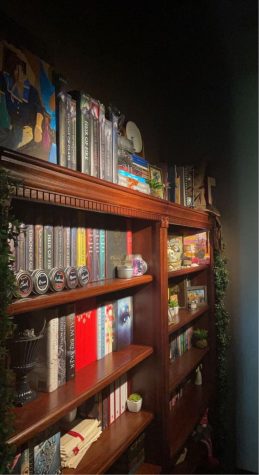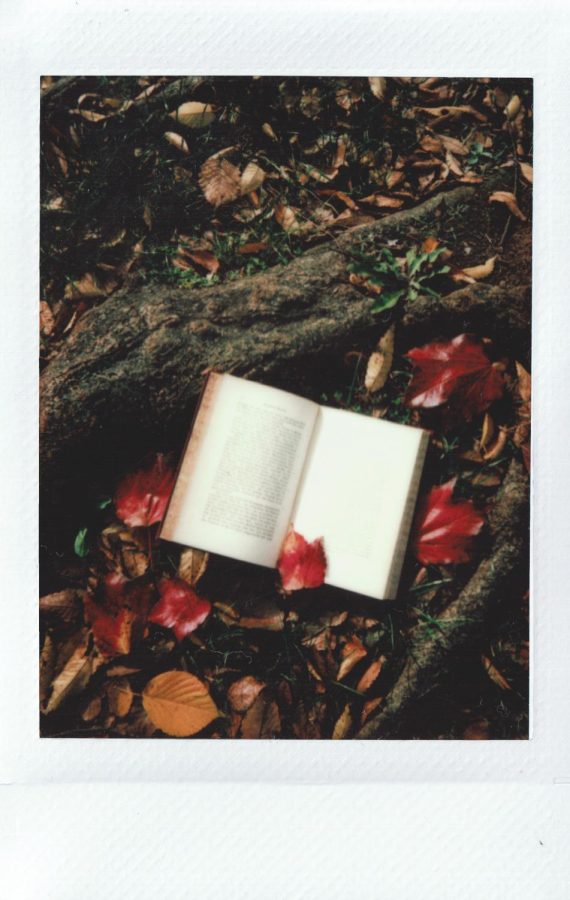4 Tips To Help You Get Into Reading
December 16, 2022
Reading, and everything it entails is viewed by most as an admirable and intelligent pastime. Because of this, ‘becoming a reader’ is a common societal and personal desire. However, while many set this goal, most fail to reach it. Picking up a book and putting it down at the first sign of boredom or confusion is a common outcome that new readers succumb to. As we’ve grown up, we’ve lost a lot of the time, energy, imagination, and patience that recreational reading requires, but luckily, reading is an unwavering ability. If you think reading is not for you, perhaps you need a shift in mindset and execution. Below are a few helpful tips for those who wish to get into (or back into) reading.
Find the right ‘level’ for you
The first step to becoming a reader is finding a book to read. Did you ever see those Kaplan Step Into Reading books when you were little? Each one would have a big number at the top that would help us understand what level of reader correlates with the book. Now, even if you can’t see these numbers on the books you’re considering, the numbers still apply, and they are crucial for making the appropriate decision.
You will quickly revert to a world without books if you choose a book unsuitable for your reading level. Many beginning readers see the simpler novels and decide to pick them up to finish the book more quickly so they may brag about having read a specific number of pages in a particular amount of time. Others make the error of underestimating their potential or coming up with an additional justification to read these kinds of books. Then, the book starts to seem boring or uninteresting to the reader as they fail to comprehend that the problem isn’t the book or its writing but the reading level of its intended audience. Had the reader been at a lower reading level, one that matches up with the book they’d chosen, it’s quite likely that they wouldn’t have found the book to be bland.
The same way that you might choose a book that is too easy for you, it’s also a typical error to choose one that is too challenging. Readers frequently desire to begin at a higher level because they observed someone else reading a certain book or because they believed a book of greater difficulty would raise their reading level and enable them to advance quickly. The trouble lies in the fact that books at their reading level are already difficult, but only to the extent necessary for them to learn from and enjoy the book. If the book is too challenging to read, skimming develops into an unintended habit, reading becomes a chore, and the reader finishes the book forgetting all of the information contained inside the pages.
Don’t force yourself to read
Think about how many hobbies you have picked up and dropped throughout your lifetime. In order to cheat reading of this fate, it is crucial to establish a positive mental association behind it. When starting out, many think that scheduling specific times dedicated to reading, in other words compelling oneself to read, will prove beneficial. However, the idea behind this strategy is flawed, mainly because recreational reading is not something that is meant to be strategized. The mindset that you have to ‘force’ yourself to read creates the subtle implication that reading is not an activity to be enjoyed, but instead a box to be checked off. Pressurizing reading will quickly deaden any drive you have towards it because it turns it into a chore as opposed to a recreation.
Focusing on the amount you read is a mistake that will inevitably lead to unnecessary stress. It’s important not to grow discouraged if you feel you are not reading enough. Reading, like most hobbies, is meant to be personalized and well-balanced. Reading excessively at the beginning will ultimately kick-start the infamous outcome of growing bored, burning out, and giving up. The way to keep reading a continuous interest and not another short-lived obsession is to read the amount that fits your life. As strange as it may sound, one of the best ways to grow as a reader is to casualize it. Think about things you do for entertainment, such as watching a movie or listening to music. These aren’t things you pre-plan or force yourself to partake in, but activities you turn to by choice. In order to acquire this type of relationship with reading, you should treat it in a similar way: Read when you have the time and desire to do so.

Maintain realistic expectations
When a reader picks up a book, they have high hopes. The trouble arises when people open the first page and immediately anticipate an amazing tale. The beginning of most books is sadly dull. Various factors might be at play, but the most apparent one is that the author must first go through the introduction procedure. Most books have to debut with the characters and the setting being introduced, winding up the crank for the jumpstarting release of a compelling storyline and dramatic events.
Find your preferences
Reading is one of the most subjective endeavors a person can engage in. The success and likability of a book is entirely dependent upon the personal preferences of the reader, meaning what is viewed as a literary masterpiece by someone could be viewed as boring and plain by another. With this in mind, it is crucial that you do not grow disheartened upon not liking a book. A common misstep made by beginner readers is to pick up a book, not enjoy it, and then proceed to mistake this dislike for indifference, viewing it as a sign that they are not meant to be a reader. This idea is humorously inaccurate, for everyone is capable of becoming a reader.

The boundless amount of published books, all varying greatly in style, provides something for all tastes and preferences. Characters, plot points, writing styles, tropes, and genres are all characteristics that differ greatly from book-to-book, and with time you develop an understanding of what you do and do not enjoy. It is crucial to discover what types of books are most engaging for you, and the method to go about doing so is trial and error. Sometimes, you have to discover what you don’t like in order to find what you do. Do not feel pressure to enjoy certain types of books over others, for forcing yourself to read books you do not enjoy will smother your fondness toward reading as a whole. The most important thing is to maintain the mindset that you are allowed to dislike certain books and genres, no matter how acclaimed they may be, and this does not reflect poorly upon your ability as a reader. Instead, use it as an indicator that you need to experiment more with differing genres in order to find what you enjoy.
There is no right or wrong way to be a reader. The pressure to fit a certain perception can cause a person to develop a distaste for reading. The world of books is both an admirable and rewarding one, and it would be a shame for someone to miss out on such a paradisiacal pastime due to false understandings of what reading should entail. Finding the right level for you, not forcing yourself to read, maintaining realistic expectations, and finding your preferences are 4 things you can do to kindle your inclinations and grow as a reader.








